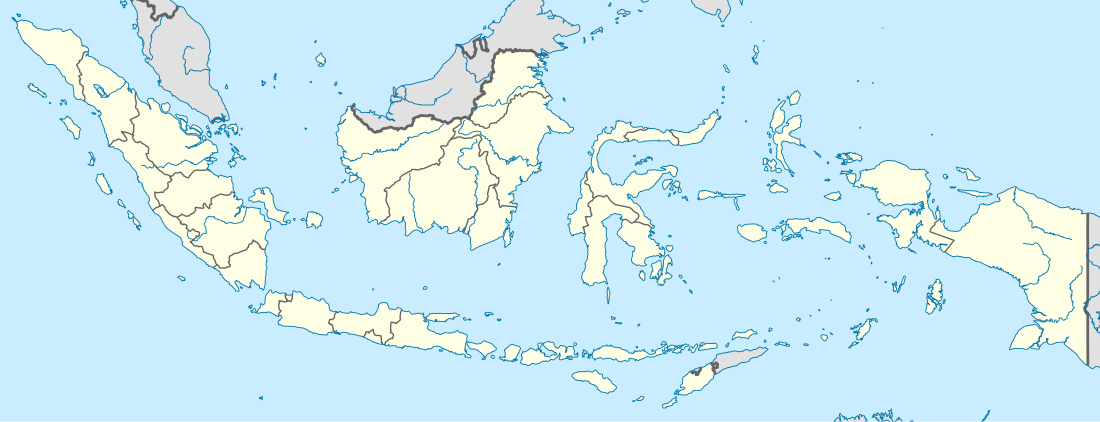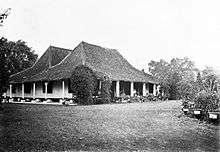Cianjur, Cianjur Regency
| Cianjur | |
|---|---|
| Other transcription(s) | |
|
Main road in Cianjur | |
| Motto(s): Sugih Mukti | |
 Cianjur Location of Cianjur in Indonesia | |
| Coordinates: 6°48′42″S 107°8′43″E / 6.81167°S 107.14528°ECoordinates: 6°48′42″S 107°8′43″E / 6.81167°S 107.14528°E | |
| Country | Indonesia |
| Province | West Java |
| Government | |
| • Regent | Irvan Revano Muchtar |
| Population (2010) | |
| • Total | 158,125 |
| Time zone | UTC+7 (WIB) |


Cianjur is a town and district in the West Java province of Indonesia, and is the capital of Cianjur Regency. The town of Cianjur is located along one of the main roads between Jakarta (120 km to the northwest) and Bandung (60 km to the east). The population was 158,125 at the 2010 Census.[1] Because of its location, some of Cianjur's residents commute to work either in Bandung or in Jakarta.
The road on which Cianjur is located used to be the main (extremely busy) road from Jakarta to Bandung but was in effect replaced as the main road link between these two main cities when the Jakarta-Bandung tollroad was fully completed in 2005.
Cianjur was founded in 1677, with the first head of the town being R. A. Wiratanudatar I, entitled Dalem Cikundul, as the descendant from the old Sundanese kingdom of Pajajaran.
The district mainly produces agricultural products, especially rice, and it has been known as the major source of rice production for the heavily populated Java island besides Karawang.
More than 75 people were killed in the earthquake of 2 September 2009.
Transportation
After being dormant for about 2 years, the train called Siliwangi between Sukabumi and Cianjur was reactivated on 8 February 2014. It is faster than the buses which are usually trapped in traffic jams, but the cost of a train ticket is double that of using buses.[2]
Policies
By 2007 the city government asked female municipal employees to wear jilbab (hijab). It also placed road signs encouraging women to wear jilbab.[3]
References
- ↑ Biro Pusat Statistik, Jakarta, 2011.
- ↑ "Humas: Tarif KA Cianjur-Sukabumi Masih Bisa Dikoreksi". 8 February 2014.
- ↑ Warburton, Eve (January–March 2007). "No longer a choice" (89 ed.). Inside Indonesia. Retrieved 2017-06-20.